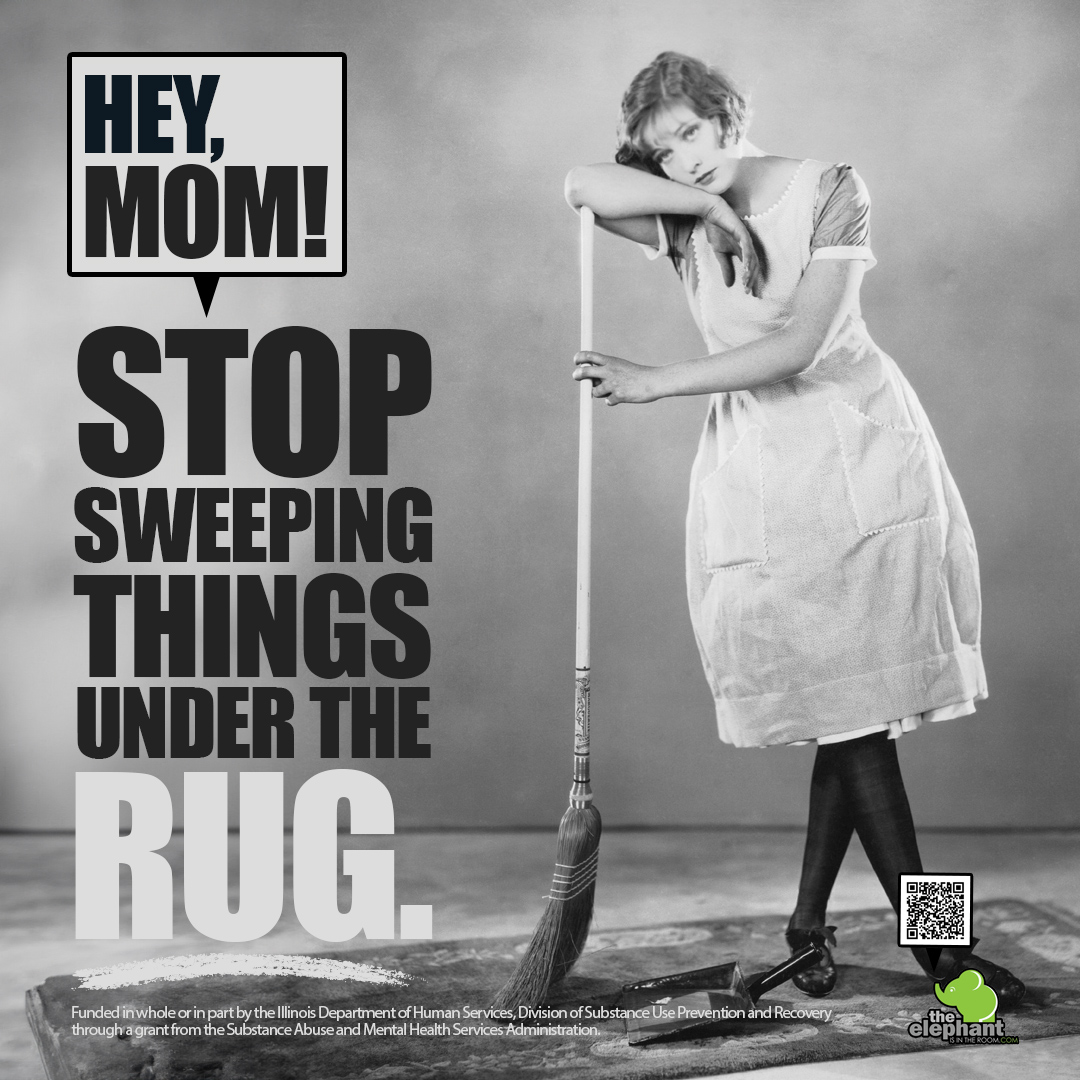
QUESTION EVERYTHING.
HERE’S THE TOP 5 FREQUENTLY ASKED QUESTIONS ABOUT THE ELEPHANT IS IN THE ROOM CAMPAIGN.
1WHAT IS THE ELEPHANT IS IN THE ROOM CAMPAIGN?
The Elephant is in the Room is a marketing campaign designed by parents
for parents to help them prevent underage drinking before it starts.
2WHERE CAN I FIND CAMPAIGN MATERIALS?
The Elephant is in the Room campaign materials are displayed in school,
on social media, through email, text messages, and here on our website!
3WHY SHOULD I PAY ATTENTION TO THE CAMPAIGN?
Because you love your children and want to keep them safe. The Elephant is
in the Room is like a good friend that’s full of great advice, helpful resources,
and tips on how to keep your teen from drinking alcohol underage.
4IS THE CAMPAIGN IN SCHOOLS NATIONWIDE?
Nope. The Elephant is in the Room campaign is only offered in a couple
schools in southern Illinois. The people responsible for creating the materials
live here, work here, and know what it’s like to be a parent because well, we
are parents.
5IS THIS NECESSARY? MY KID IS TOO YOUNG TO THINK ABOUT DRINKING.
Studies show that kids start experimenting with alcohol as early as age 12, so yes, the campaign materials and messages are an invaluable resource for parents who want to keep their kids safe and healthy.
WANT AN ADRENALINE RUSH? TALK TO YOUR GRANDKIDS ABOUT WHY YOU DON'T APPROVE OF UNDERAGE DRINKING.

Hey Nana, you’re a huge part of your grandkids’ lives, and your influence means the world to them.
As a trusted role model, your words and actions carry weight, especially when it comes to important conversations about safety and well-being. One of the most powerful ways you can support your grandkids is by talking to them about the risks of underage drinking. These discussions may not always be easy, but they can make a significant impact on their choices as they grow older.
By having these open and honest conversations, you’re not only helping to guide your grandkids, but you’re also encouraging a positive and supportive environment for your adult children to continue reinforcing the same messages. It’s a family effort, and when everyone is on the same page, it becomes much easier to make smart, safe decisions together.
We know how much you cherish the time spent with your grandkids. By taking a proactive approach to their safety, you’re ensuring that these moments are filled with joy and that the whole family stays on the right track. So, let’s continue to enjoy the ride, while making sure we’re all staying safe and protected.
You’ve got this, Nana!



